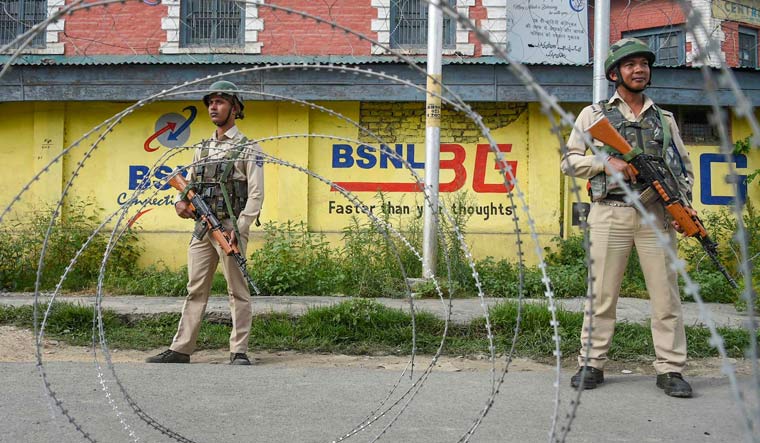Even as the United Nations Security Council discussed India's recent move on Jammu and Kashmir on Friday, New Delhi reiterated that issue related to Article 370 of the Indian Constitution was entirely an internal matter of the country.
Syed Akbaruddin, India's Ambassador and Permanent Representative to the UN Security Council, said the decision taken by New Delhi had no external ramifications.
Also read
India on August 5 revoked the special status of Jammu and Kashmir and bifurcated the state into two Union territories—Jammu and Kashmir, and Ladakh.
“The recent decisions taken by the government of India and our legislative bodies are intended to ensure that good governance is promoted and social economic development is enhanced for our people in Jammu and Kashmir and Ladakh,” Akbaruddin said.
His statement came soon after the 'closed door meeting' of the security council to discuss India's decision on Jammu and Kashmir concluded. The UNSC met on Friday after Pakistan, backed by its all-weather ally, China, requested "closed consultations" on the issue.
On the Chinese and Pakistani envoys briefing the media after the meeting, Akbaruddin said, "For the first time after the end of Security Council consultations, we noted that two states (China and Pakistan) who made national statements tried to pass them off as the will of the international community."
He said New Delhi was committed to gradually removing all restrictions imposed in Kashmir Valley.
“Since the change is internal to India, we have not made any difference to our external orientation,” he said in the wake of China raising concerns over Ladakh being declared as a Union territory.
#WATCH: Syed Akbaruddin, India’s Ambassador to UN says,"so, let me start by coming across to you and shaking hands. All three of you," to a Pakistani journalist when asked,"when will you begin a dialogue with Pakistan?" pic.twitter.com/0s06XAaasl
— ANI (@ANI) August 16, 2019
India remains committed to ensure that the situation in Jammu and Kashmir remains calm and peaceful, he said.
Pakistan had strongly opposed India's decision to scrap the special status of Jammu and Kashmir, calling it a violation of UN guidelines. Reacting to New Delhi's move, Islamabad had had expelled the Indian High Commissioner soon after deciding to downgrade diplomatic ties with New Delhi.


